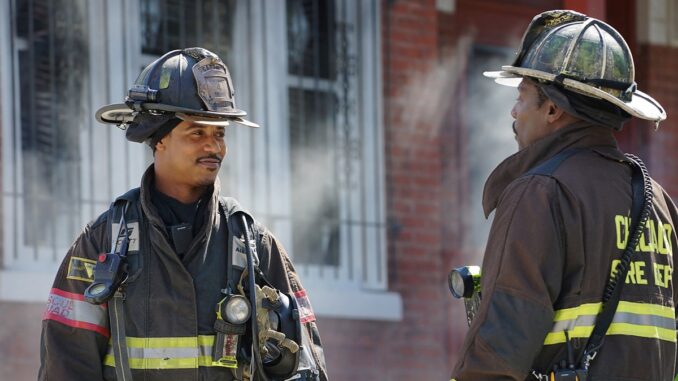
The Ember’s Ash: When Chicago Fire 2025 Extinguished Its Own Heart
The year 2025 dawned with a tremor of anticipation for loyal fans of Chicago Fire. After a brief hiatus, the promise of a new season crackled through the digital airwaves, a familiar comfort in an ever-changing world. We yearned for the siren’s wail, the camaraderie of Firehouse 51, the unwavering heroism that had defined our Tuesday nights for over a decade. But what we received, starting with the jarring premiere of “MD07,” was not a rekindling of the flame, but a shocking, regretful transformation that left us feeling like a beloved landmark had been razed and replaced by a soulless corporate tower.
The first, and arguably most devastating, blow came with the unceremonious departure of Lieutenant Kelly Severide. For years, Severide had been the show’s brooding, often reckless, but undeniably magnetic heart. His expertise as Squad 3’s leader, his complex relationships, and his fierce loyalty were foundational. Fans had speculated wildly about his return, preparing for a dramatic rescue, a heroic sacrifice, anything that befitted his legend. Instead, “MD07” revealed that Severide hadn’t died, nor had he left for a noble cause. He had simply… taken a corporate job. A high-paying consulting gig for a private firm specializing in “disaster mitigation logistics.” The scene where Stella received a cold, typed resignation email, not from Kelly, but from his new assistant, sent a collective gasp through the fanbase. This wasn’t the maverick, the man whose blood ran with adrenaline and soot. This was a character stripped of his essence, reduced to a pragmatic careerist, and it felt like a betrayal. The regret was a bitter taste – not for his death, but for the death of who he was.
Then came the seismic shift in the very structure of Firehouse 51 itself. Chief Boden, once the stoic pillar, the moral compass, the father figure who balanced command with profound empathy, was now… different. The new season introduced a city-wide “efficiency initiative,” forcing Firehouse 51 to become a pilot program for a “streamlined, data-driven emergency response model.” Boden, under immense pressure, had transformed from a chief to a CEO. His office, once a sanctuary of wisdom and personal counsel, now featured glass walls and digital dashboards displaying real-time metrics for response times and resource allocation. Gone were the impromptu heart-to-hearts; replaced by mandated “synergy meetings” and performance reviews. His booming laugh was replaced by a measured, almost robotic tone, his signature warmth overshadowed by a polished, detached demeanor. The firehouse, once a bustling second home, felt sterile, almost clinical. The communal table in the kitchen, once the site of shared meals and banter, was now reserved for “briefings” under glaring fluorescent lights. This wasn’t the family we knew; it was a well-oiled, impersonal machine, and the regret was for the evisceration of the show’s very soul.
Adding insult to injury were the fresh faces designed to “inject new energy.” We were introduced to Dr. Kaelen Reed, a new paramedic with a popular “first responder influencer” side hustle, constantly filming her daily exploits for her “FireFam” followers, often to the detriment of actual patient care. Then there was Captain Thorne, Severide’s replacement, a hyper-efficient, by-the-book tactician who referred to his crew as “assets” and scoffed at the “emotional attachments” of the veteran firefighters. He brought no heart, no history, just a cold competence that made every rescue feel transactional. The once vibrant ensemble dynamic fractured, with characters constantly at odds with these grating newcomers, not in dramatic tension, but in plain annoyance. The regret wasn’t just for who was gone, but for who had arrived, tarnishing the legacy of those who had built the show’s foundation.
By the end of “MD07,” and indeed, the episodes that followed, the initial excitement had curdled into a profound sense of loss. Chicago Fire 2025 was a show haunted by the ghosts of its former self, a hollow echo of the thrilling, character-driven drama we once adored. The shocking changes hadn’t invigorated the series; they had amputated its heart, stripped its soul, and replaced its unique warmth with a cold, corporate sheen. Fans weren’t just disappointed; they were regretful, mourning the death of a beloved era, wishing perhaps, that some fires, however beautiful, were simply allowed to burn out gracefully rather than be remade into something unrecognizable and ultimately, unlovable.
